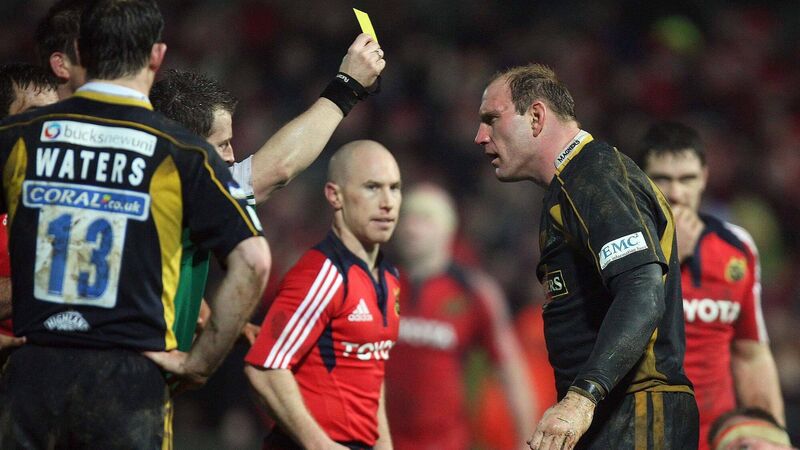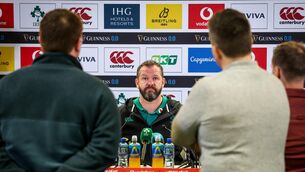Donal Lenihan: Sad sting in the tale for proud Wasps

BATTLES: Lawrence Dallaglio of Wasps receives a yellow card, while Peter Stringer looks on, during the Heineken Cup clash in January 2008. Pic: INPHO/Morgan Treacy
With Worcester Warriors already relegated from the Gallagher Premiership as a consequence of entering administration the unthinkable happened, even earlier than expected, when Wasps were forced to follow suit last Monday as a consequence of their inability to satisfy a £2m tax debt to the revenue.
Wasps are one of the great clubs of the professional era. Six times Premiership champions, Heineken Cup winners in 2004 and 2007 under Warren Gatland and Shaun Edwards, they were not only the English standard bearers but one of the strongest and best coached clubs in Europe.










